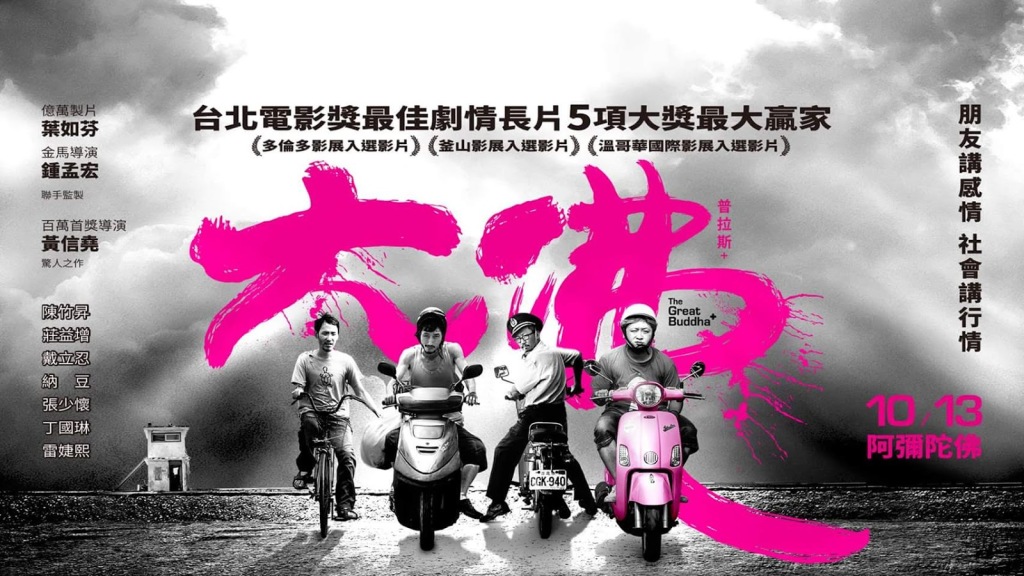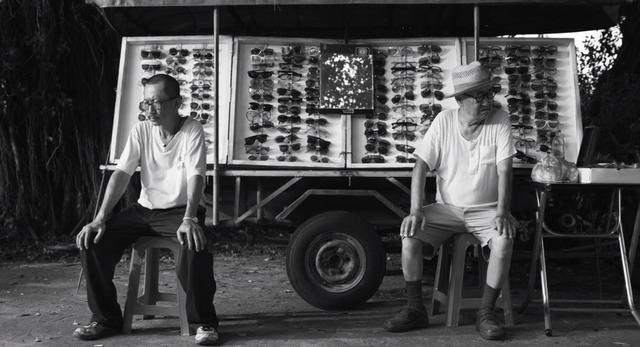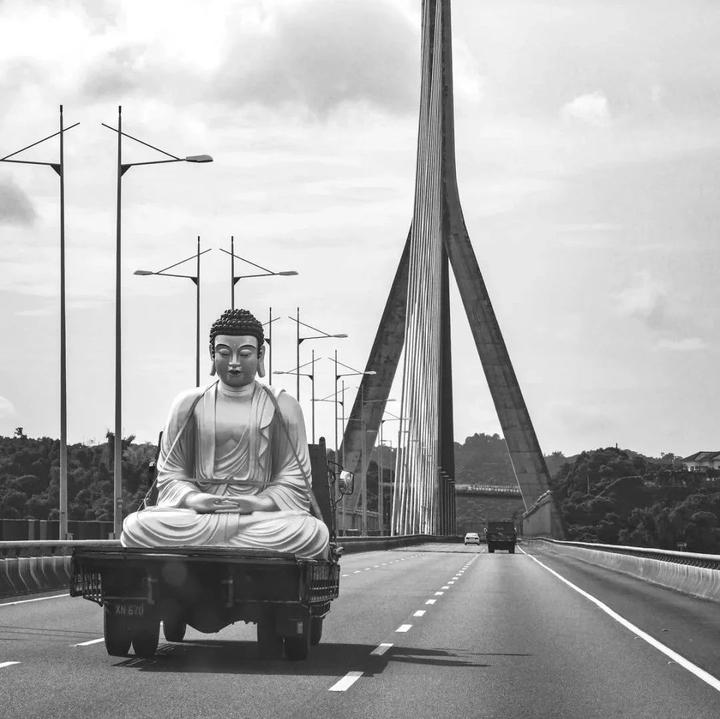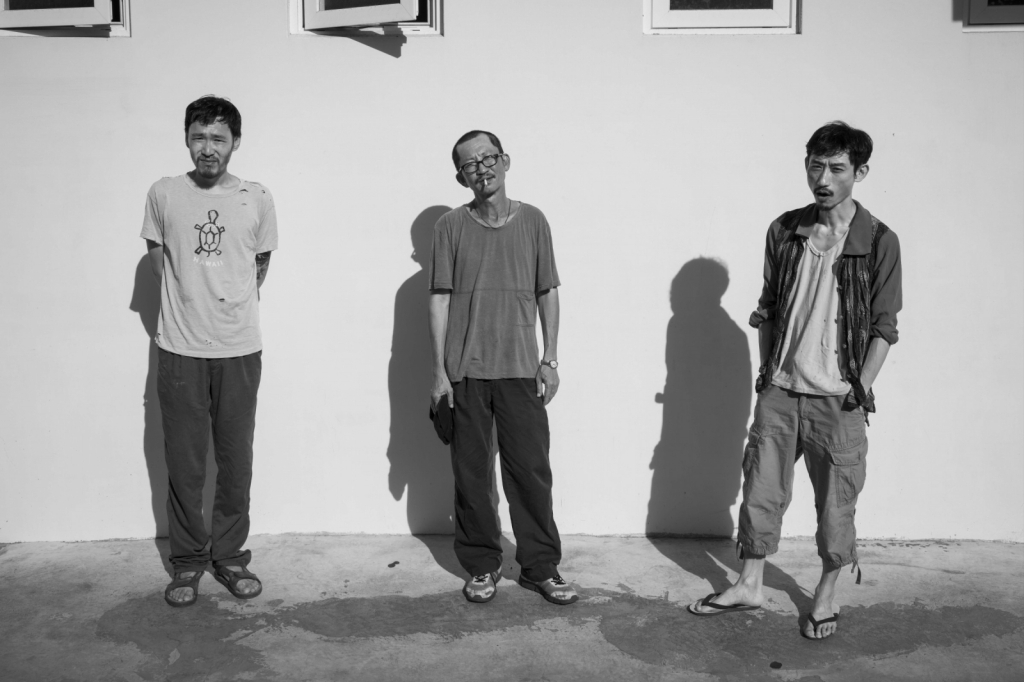
Reviews. The Great Buddha+ (大佛普拉斯). National identity and popular culture classrooms. This Taiwanese film is available on Amazon Prime, which is quite a breakthrough for those of us who are permanent foreign exchange students. And for a grumpy elderly monkey who grew up used to a letter taking 7-10 days to cross the Pacific, mind-boggling. I waited so long to watch it because too many people talked about it too often. I waited too, because I knew it would depress me in deep and complicated ways. I watched it alone on purpose. I cried. Often. I stopped several times to gather myself. As a former Taipei resident, taught-brainwashed by the Chinese occupiers to detest my own kinfolks, the rural southern Taiwan depicted is alien and super familiar at once — foreigner in one’s own land kind of stuff — all subjects of foreign colonial occupation would have some version of this out of the body experience. While the invading Chinese refugees stripped my native language, culture, memory, and identity during my childhood, the world depicted in this film is the parallel universe the Chinese colonialists exploited and demeaned — this is where they grabbed conscripts for their stupid civil war, this is where they exploited the cheap labor to benefit their parasitic party-state. And now, decades after their military dictatorship formally collapsed, the sociological, cultural, economic, and political legacies remain — a poisoned well, no way forward, no way back. The rural Taiwanese character sketches are familiar from my ancestral village of Neihu, now an urban Taipei suburb but during my childhood a transitional rural light industry village; and my mother’s central Taiwan home of Chang-Hwa. Even after all of these decades I could smell the dust, heavy metal, rice paddies, animals, cooking, diesel fuel …. and hear the sounds, scooters to mini farm tractors (“metal water buffalos”) and factories and food vendors and animals. I enjoyed the banter in Taiwanese — basically impossible to hear in Taipei nowadays — though it reminded me how poorly I speak Taiwanese, the fluent, natural, beautiful language of our ancestors, the language of this soil. As it has been for decades, even in one film the language of the invaders speaks to education/class/wealth, while the language of the occupied is the language of the homeless and impoverished and powerless. yes, I enjoyed the temple dedicated to the bloodthirsty invader Chiang Kai-shek, and the scene alluding to the many multinational Buddhist-ish cults based in Taiwan. The passive-aggressive full of Buddhist kindness art critique of the great big Buddhist statue was delightful as it depicted at once the hypocrisy of the Taiwan elites, and every childhood conversation one has ever had with one’s elders. The swearing in Taiwanese throughout made me so proud and happy — just beautiful. I wish more Taiwanese would learn to righteously swear at our colonial occupiers in our beautiful ancestral tongue. The beautiful memorable parts of this film are the inconsequential details — conversations, silence, framing of scenes, detailing essential truths about what life for the most vulnerable in Taiwan is like under Chinese KMT occupation. And as I thought about it, it is also an op-ed about how these awful realities have not changed since the supposedly Taiwanese party DPP has taken over — rather than a genuinely Taiwanese renaissance, a much-needed decolonization, cleansing, and a national rebirth, what we have now is a new crop of Taiwanese politicians ruling by following the underlying corrupt, elitist, exploitative logic and habits of the Chinese refugees-invaders. What to do about this? …. Well, I did say I avoided the film knowing it would be deeply and personally depressing right. I don’t know. I am at a loss myself. 22.9.2018
Reviews. The Great Buddha+ (大佛普拉斯) [Netflix] It is difficult making a film about human beings on the margin of society – or about the inhumanity of modern capitalism – while being hilariously funny, and deeply sad, and humane, and thoughtful, without veering into melodrama, sentimentalism, hope-casting, cynicism, or worse, becoming preachy. The is a beautifully constructed film – on some level even on multiple viewings it feels like being hit by a sledgehammer – yet it is also gentle and beautiful at once. As always with this director, the Taiwanese spoken throughout is lovely, and the musicians chosen for the soundtrack are superb. He’s got this thing about religious and political – modern democratic – pieties, and he expresses the critiques of elite hypocrisy in the sharpest and funniest ways. Usually, I hate crying during films and tee-vee shows – this film has the unusual achievement of making me cry and belly laugh at the same time. The death of one of the main characters was rendered in such a beautiful way – full of commentary yet with such humor, love, and respect. And the gaps between the religious and secular-democratic pieties versus how they actually behave – the passive-aggressive arguing over the overly large statue of the Buddha; and the campaign posters sheltering a near homeless family from the rain. And maybe too, the brilliance with this director is in the discipline to not propose quick fixes, or even to have a conventional ending to his stories. Life is full of good and bad – friendship and love, injustice and exploitation – and how many of us leave this earth all that different than the poor fella with the chalk outline around his corpse? Another gift of this director I think, which I noted in a review of his other film, is in respecting his characters – people on the margin – enough to not sentimentalize or idealize them. A wonderful, beautiful, funny, terribly sad film. Just like life itself. 22.2.2024





© Taiwan in World History 台灣與世界歷史. This site grants open access for educational and not-for-profit use. Maps and illustrations are borrowed under educational and not-for-profit fair use. If you are the rights holder and prefer not to have your work shared, please email TaiwanWorldHistory (at) Gmail (dot) com and the content will be removed.
